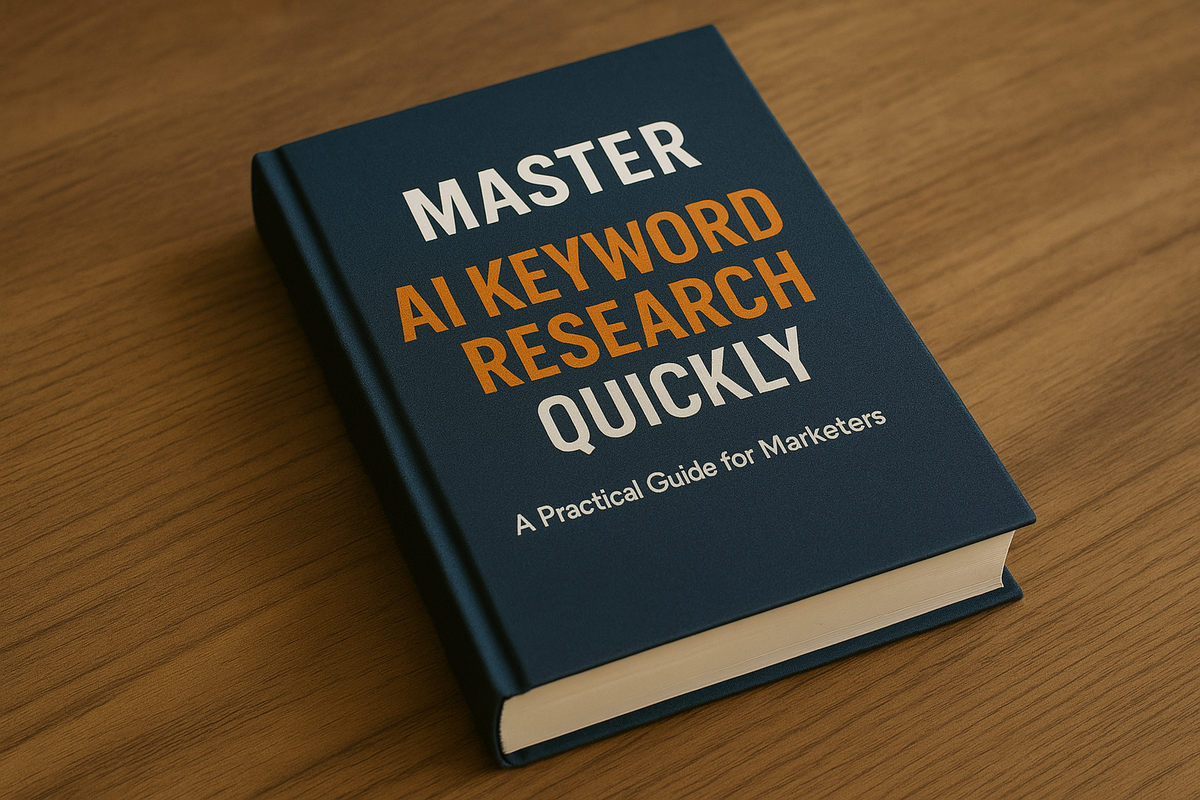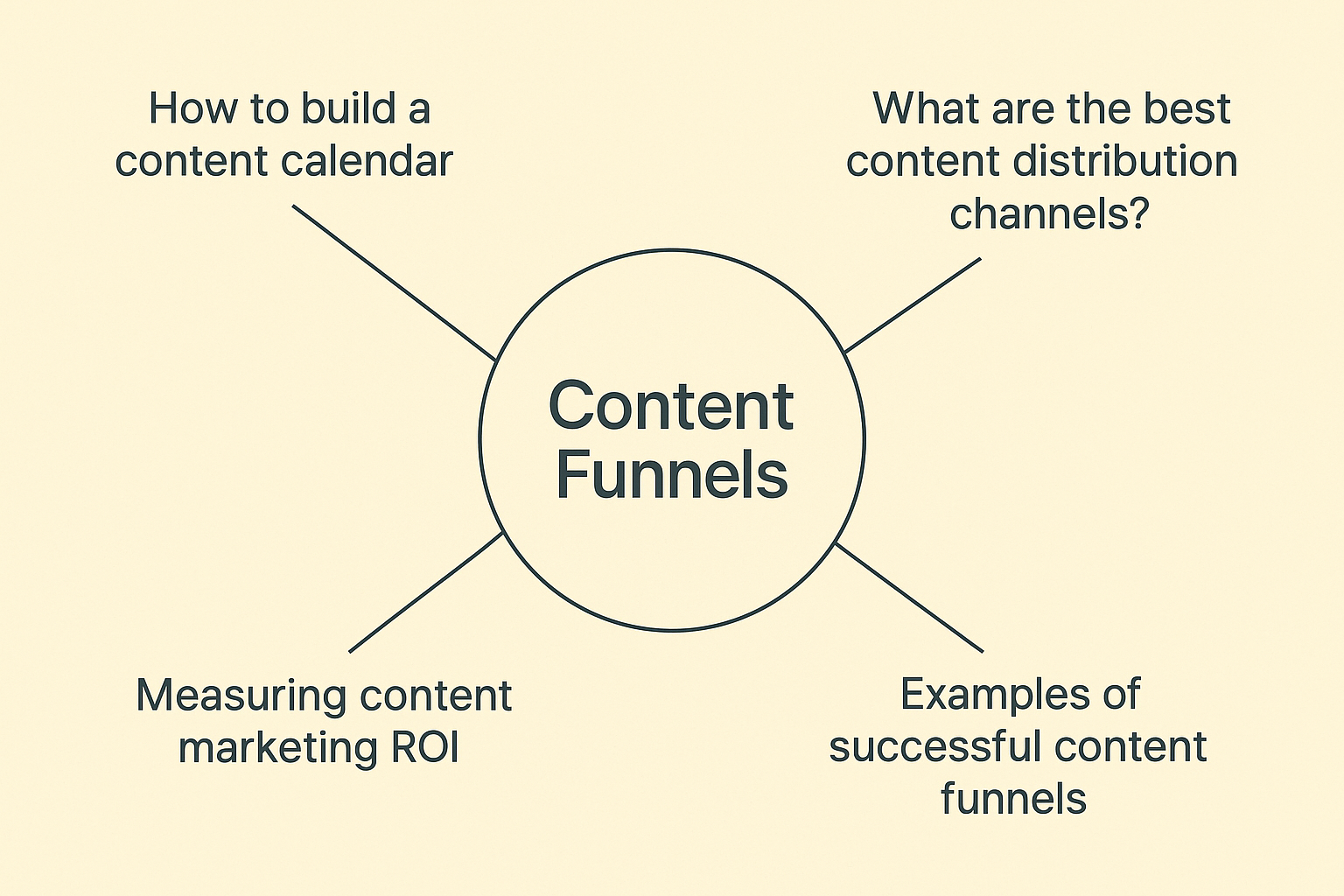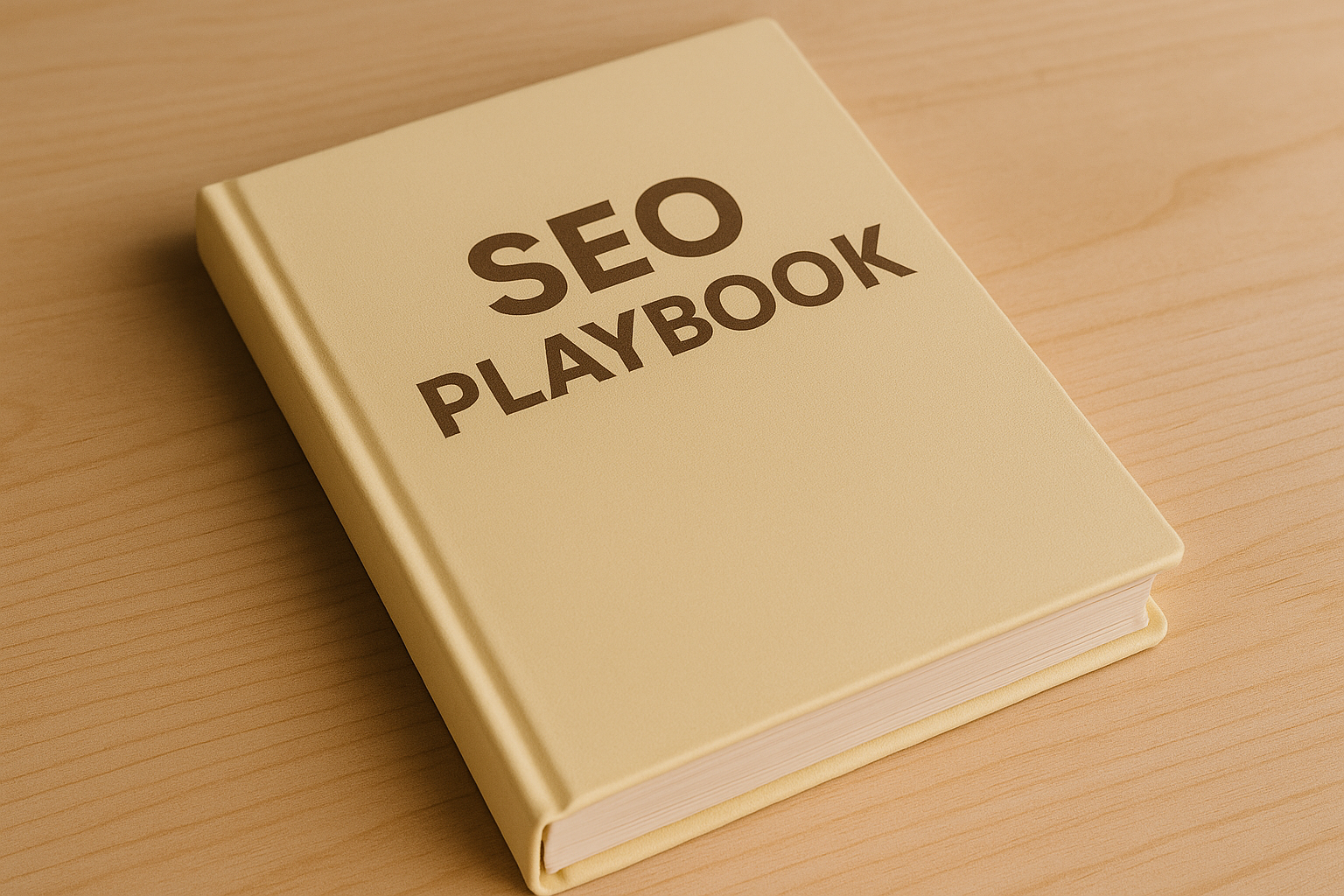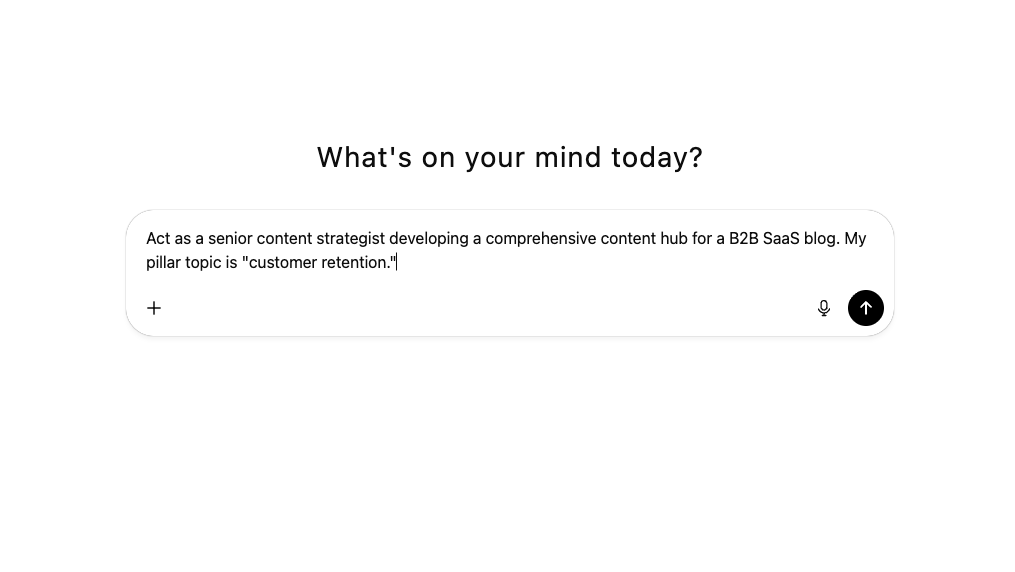Master Ai Keyword Research Quickly: A Practical Guide for Marketers

I used to spend entire days locked in spreadsheets. The keyword research process was always the same: plug a seed keyword into a keyword tool like Ahrefs, export thousands of rows, and then begin the painstaking manual labor of filtering, sorting, and grouping each keyword. It was a core part of SEO, but it felt more like data entry than strategy. That entire workflow is starting to feel like a relic. The shift to AI Keyword Research is not just about doing the old job faster; it’s changing the job entirely.
For years, keyword research was a game of approximation. We would find a high-volume head term and bolt on modifiers, hoping to capture long-tail intent. It worked, but it was noisy and left huge gaps. Today, I can spin up a complete, thematically clustered content plan in the time it used to take me to filter a single CSV file of keyword ideas.
This is not about replacing strategy with an algorithm. It is about automating the legwork so we can focus on what actually matters: understanding the audience and finding a unique angle for our keyword targeting.
Actionable Tips:
✅ Identify the single most time-consuming part of your current keyword research and find one AI tool to automate just that task.
✅ Shift your goal from "find the perfect keyword" to "map the entire customer conversation around a topic."
What is AI Keyword Research?

At its core, AI keyword research uses machine learning and natural language processing (NLP) to analyse search queries and content on a massive scale. It moves beyond simple string matching, like finding words that contain your given keyword, to understanding semantic relationships, context and user intent.
This is powered by two key technologies. First, machine learning models are trained on enormous datasets of text from across the web. By processing this search data, they learn to recognise patterns, relationships, and the statistical likelihood that certain concepts appear together. Second, semantic analysis allows these models to grasp the meaning behind the words. The AI understands that “customer churn” and “user attrition” are related concepts, even if they do not share the same words. This is what allows it to think in clusters of keywords related to each other.
It understands that queries like:
- "How to build a content calendar"
- "What are the best content distribution channels?"
- "Measuring content marketing ROI"
- "Examples of successful content funnels"
all belong to the same topical universe. Instead of giving you a flat list of keywords, AI can group them into logical sub-topics. It shows you the shape of the conversation, not just the words people are typing. This is a fundamental shift from keyword-first to topic-first SEO. It is less about winning a single keyword and more about proving your authority across an entire subject to the search engine.
For me, this means my initial research process is no longer about finding an individual keyword to target. It is about asking the AI to map the entire territory for me. I can see the major landmarks (pillar topics), the connecting roads (cluster topics), and the interesting side streets (long-tail questions) all at once. The keyword tool uses this to provide a comprehensive keyword overview.
More Wins:
✅ Take a list of your top 10 existing keywords and feed them into an AI model. Ask it to "identify the underlying user intent for each keyword" to see the difference between a keyword and the problem it represents.
✅ Use AI to generate a list of synonyms and semantically related terms for your primary keyword to build a richer, more context-aware content piece.
Benefits of Using AI in Keyword Research

The most obvious benefit is efficiency. That day-long spreadsheet session can now be a focused 30-minute task. But the real advantages go much deeper than just speed. It is about the quality and scale of the insights you can generate from any keyword search.
I have seen stats from places like SuperAGI claiming that AI powered keyword research can boost organic traffic by 25% or more. While I take specific numbers with a grain of salt, the principle holds true in my experience. When you understand user intent more deeply, you create better content that naturally ranks for a wider basket of terms. This tool can provide the best keywords for that.
The three main benefits I consistently see are:
- Massive Scalability: Last month, I needed to understand the entire content strategy of a new competitor. They had over 600 blog posts. Manually, that is an impossible task. Using an AI, I was able to scrape their sitemap, feed the URLs into a large language model, and get a summarised output of their core content pillars, recurring themes, and keyword patterns in under an hour. This tool will help you find thousands of keyword opportunities.
- Uncovering Hidden Intent: Traditional keyword tools are great at telling you what people are searching for. AI is getting better at revealing why. By analysing forums, "People Also Ask" boxes, and comment sections at scale, a keyword finder powered by AI can surface the underlying problems and questions that do not always appear in keyword volume data. It helps find the "question behind the question," which is crucial for effective long-tail keyword research.
- Predictive Clustering: The real magic happens when you move from discovery to planning. Instead of just giving me a keyword list, I can now ask an AI to generate an entire content hub for me. It groups each related keyword into logical clusters, suggesting which should be a pillar page and which should be supporting articles. This step alone saves hours of manual outlining and ensures the content I plan has strong internal linking potential from day one. Any good keyword analysis tool should do this.
Tips for Direct Implementation:
✅ Scrape the sitemap of your top 3 competitors and use an LLM to analyse their content pillars and keyword frequency. You'll have their entire SEO playbook in minutes.
✅ Feed the text from a niche forum or Reddit thread into an AI and ask it to "extract the most common questions and pain points" to find long-tail keywords your competitors have missed.

Key AI-Driven Tools for Keyword Discovery
Talking about AI is one thing; using it is another. A lot of the discourse is abstract, but the value is in the practical application. While there is no single "best" keyword research tool, my workflow usually involves a combination of a powerful LLM for ideation and specialised AI tools for SEO for keyword data validation and clustering.
Here are a few I find myself using regularly:
- Semrush and Ahrefs: These traditional SEO powerhouses have integrated AI features that are genuinely useful. I use them for validation. After getting clusters from an LLM, I run the core terms through their keyword explorer to check for search volume and keyword difficulty. Semrush's Keyword Magic Tool, for example, uses AI to generate related subtopics and questions, grounding creative ideas in actual search volume data.
- SurferSEO or Clearscope: These tools offer support at the content planning stage. Once I have my validated clusters, I can use a tool like SurferSEO to analyse the top-ranking pages for a target keyword. It uses AI to identify common themes, entities, and keywords that the search engine expects to see in content on that topic. This moves beyond a single keyword and helps build truly comprehensive articles.
ChatGPT or Claude: These are my starting point for brainstorming and structuring. They are excellent for the initial ideation phase, where you need to map out a topic. I use a clear, role-based prompt to generate keyword ideas before I look at any hard data. This helps me think about the topic from a user’s perspective first. A free keyword generator can sometimes be a good starting point.Example Prompt for an LLM:
Act as a senior content strategist developing a comprehensive content hub for a B2B SaaS blog. My pillar topic is "customer retention." Your task is to: 1. Identify 5-7 distinct thematic clusters that fall under the main topic of "customer retention." Name each cluster clearly (e.g., "Onboarding & Activation," "Feedback & Community," etc.). 2. For each cluster, generate a list of 10-15 specific content ideas. Frame these as a mix of long-tail keywords, user questions, and article titles. 3. Organise the output in clean markdown.
My workflow is a loop: ideate with an LLM, validate and refine with a traditional SEO tool, and then plan the specifics with a content optimisation tool. Using the keyword data from each step grounds the creative power of AI in real-world search data.
Actionable Wins:
✅ Use a creative LLM prompt to generate 5-10 thematic clusters for your main topic before you look at any keyword search volume.
✅ Validate the keyword ideas generated by your AI by running the top terms through a traditional keyword tool to check for realistic search volume and keyword difficulty.
Challenges and Limitations of AI Keyword Research
It is easy to get carried away. While AI Keyword Research is powerful, it is not infallible. Relying on it blindly is a recipe for creating generic, soulless content.
The first major challenge is the "black box" problem. Sometimes, AI tools surface keywords or topics without explaining their reasoning. You get a list, but no context. This can be misleading if you do not apply your own critical thinking. I have seen an AI keyword research tool suggest trending topics that are completely irrelevant to my audience, just because they were algorithmically associated.
Then there is the authenticity issue. If every marketer uses the same prompts in the same AI tools, we will end up with a web full of identical, optimised-to-death articles. The competitive edge will come from the human insight you layer on top of the AI's foundation. It is a tool that helps efficiency, not a replacement for creativity.
We also need to consider the ethical implications. Where do these AI models get their data? Often, it is from scraping the entire public web, which raises questions about copyright and data privacy. Furthermore, there is a risk of generating biased or inaccurate information if the underlying training data is flawed. As marketers, it is our responsibility to verify the outputs and ensure the content we create with any keyword tool is accurate, helpful, and original.
Finally, AI is not always efficient. A Search Engine Land article noted that some AI tools can be incredibly inefficient, creating more noise than signal. This resonates. An unrefined prompt can spit out thousands of irrelevant keyword ideas, forcing you back into the same filtering work you were trying to escape. The skill is in crafting precise prompts and knowing how to filter your keyword suggestions.
Tips for Staying Grounded:
✅ For every keyword suggestion an AI gives you, ask yourself: "Would a real customer of mine actually search for this? Does it solve their problem?" This is your human-led validation.
✅ Create a "brand voice" document and include it in your prompts. For example: "You are a witty, helpful expert writing for busy founders. Your tone is informal but authoritative. Now, generate keyword ideas for..."
Future Trends in AI Keyword Research
The field is moving fast. With Google Search processing over 8.5 billion searches a day, the incentive to build smarter AI SEO systems is massive. I see a few key trends firming up.
First, the tools will become more integrated. We are moving away from siloed applications for SEO keyword research, writing, and analysis. The future is a single system where AI can suggest a keyword, help draft a brief based on top-ranking content, and then monitor that content's performance post-publication, suggesting updates based on ranking changes or shifts in user intent.
Second, predictive analytics will become more accessible. Instead of just analysing past data, AI will get better at forecasting which topics are about to gain traction. By analysing nascent search trends on social media, forums, and news sites, these systems could give marketers a head start on emerging conversations.
To stay ahead, it is less about a specific keyword tool for SEO and more about a specific mindset. Here are a few best practices I try to follow. Always validate AI keyword suggestions with real SERP analysis. Combine AI-driven data with your unique customer insights. And focus on using AI to build topical authority across a subject, not just to snipe an individual competitive keyword. The future of effective AI keyword research will not be about who has the best keyword research tool; it will be about who asks the best questions.
Tips for Future-Proofing:
✅ Use an AI tool to analyse SERP volatility for your target keywords. High volatility often signals an opportunity to create a definitive piece of content that Google is looking for.
✅ Dedicate 10% of your content efforts to "predictive" topics suggested by AI analysis of nascent trends. This is how you rank for a keyword before it becomes competitive.
Frequently Asked Questions
What is AI keyword research?
AI keyword research uses technologies like machine learning and natural language processing to analyse search data. Instead of just matching a search term, it understands the relationships between topics, user intent, and context to provide a more holistic view of a subject area. A good keyword tool allows for creating topic clusters and content strategies that better align with how users search, ultimately helping you find the right keywords.
How does AI improve keyword research?
AI improves the process by adding speed, scale, and depth. It automates the manual work of sorting and grouping keywords, allowing marketers to analyse vast amounts of data quickly with the help of a keyword planner. It also uncovers deeper insights into user intent by analysing semantic relationships, helping to create more relevant and authoritative content that answers the user’s underlying questions. You can use keyword research tools powered by AI to do this in seconds.
What are the benefits of AI in keyword discovery?
The main benefits include a massive increase in efficiency, the ability to scale SEO research efforts across entire websites or topics, and a more nuanced understanding of user behaviour. AI can identify content gaps, surface question-based queries that traditional tools like the Google Keyword Planner might miss, and help structure content plans into logical topic clusters. The best free keyword research tools can even do this to some extent, leading to more effective SEO strategies. You can use a free keyword tool to get started with this.
